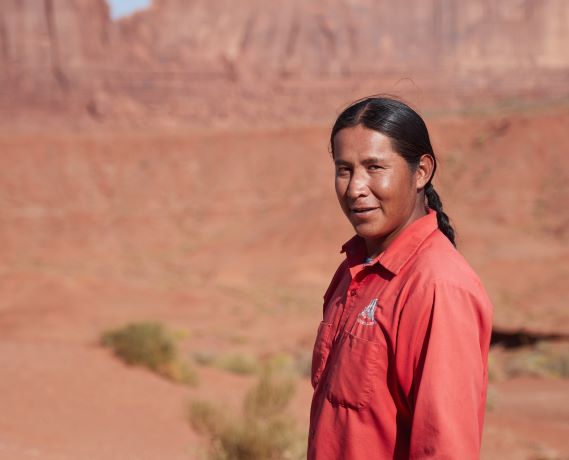
Only 36.2% of Indigenous students entering four-year colleges and universities in 2014 completed their academic degrees in six years, as compared to 60.1% of other students. Researchers have found the primary obstacle to college completion is affordability, causing overall student attrition.
Yet until research from National Native Scholarships Providers was published this summer, data on the effect of college affordability on Indigenous students’ college completion had not been fully explored.
Collaboration of four Native scholarship providers: the American Indian College Fund, the Cobell Scholarship, the American Indian Science and Engineering Society, and the Native Forward Scholars Fund (formerly American Indian Graduate Center) has resulted in the first-ever National Study on College Affordability for Indigenous Students report. To download or read a copy online, please visit: https://collegefund.org/NNSP_Affordability
Principal research staff from the National Native Scholarships Providers (NNSP) organizations served as co-principal investigators for the project, with support from Indigenous research faculty nationwide.
Cheryl Crazy Bull, president and CEO of the American Indian College Fund, said, “We want the American public and policymakers to understand the unique barriers faced by Native students as they pursue their education dreams. These barriers can be removed through continued investment via scholarships, tuition support, and supportive partnerships. This study provides a foundation from which to explore those investments.”
Collaboration of collection, data-sharing, analysis, and reporting of the study was to understand the college-going experiences of Native scholars, their families, communities, and Tribes, and how they viewed the promise of post-secondary education—and how these factors played a role in their navigating college affordability.
Sarah EchoHawk, chief executive officer of the American Indian Science and Engineering Society (AISES), said, “The incredible data produced by this national study will shed a more direct light on our Indigenous students and the financial barriers that they face along their educational journeys. This information not only allows AISES to better support our students’ financial needs, but it also provides deeper context to our overall mission goals as an organization. The collaborative efforts with the other National Native Scholarship Providers are truly remarkable in terms of the impact this work will have on our Indigenous students in Indian Country.”
Researchers also conducted an analysis of variables on affordability, such as food security, caretaking responsibilities, cultural experience, availability of off-campus housing, being the sole source of a family’s income, and more.
Melvin E. Monette, CEO of the Cobell Scholarship Program administered by Indigenous Education, Inc., said, “Data on college affordability for Native students now has new national visibility due to our scholarship organizations’ powerful data and research collaboration. This ongoing Indigenous-centric research endeavor not only enables the Cobell Scholarship program to better understand and meet our scholars’ financial needs, it aligns with Elouise Cobell’s vision of making higher education more accessible to Native students throughout the U.S.
The NNSP identified the next steps for research on college affordability for Native students, including the impact of COVID-19, student loans, the impact of the external scholarship on collegiate outcomes, and more.
Angelique Albert, CEO of Native Forward Scholars Fund, said, “This national study brings Native students’ voices to the forefront so we can begin to build the foundation for awareness, inclusion, and better understanding of the complexities of Native students’ journey through college. Collaborating with other nonprofits to form National Native Scholarship Providers is an important step in this process to explore college affordability, access to higher education, and the challenges Native students face, on and off campus.”
In addition to this ground-breaking research, the NNSP provided valuable practice and policy recommendations for higher education institutions, financial aid offices, secondary and pre-college education institutions, land grant colleges and universities, Native-American serving non-tribal colleges and universities, and national Non-Native scholarship providers.
The report is divided into subject-matter sections that include demographic and background data, Tribal affiliations, navigating personal finances to pay for education, financial aid, FAFSA completion, and debt accrual.
To download or read a copy of the report online, please visit: https://collegefund.org/NNSP_Affordability
The U.S. Army Corps of Engineers has been tasked with…
Brown and Caldwell, a leading environmental engineering and construction firm,…
Humboldt State University, one of four campuses within the California…